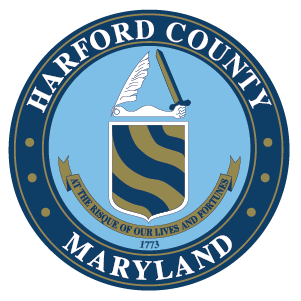Alternative Dispute Resolution/Mediation
Circuit Court ADR Program
20 West Courtland Street, Room 2-10
Bel Air, MD 21014
Telephone: 410-638-3054
Fax: 410-638-9589
E-mail: [email protected]
ADR Program Manager: Heather L. Akehurst-Krause, Esq.
ADR Coordinator: Ann B. Cogan, Esq.
Alternative Dispute Resolution (ADR), is a process during which parties in a pending court case seek resolution of their disputes prior to litigating them at trial. There are several forms of ADR, including mediation, neutral case evaluation, neutral fact-finding, settlement conference, or a combination of any of these.
Mediation is the most common form of ADR ordered by the court in civil and family law cases. It is a confidential process in which parties work with one or more trained mediators. The mediators are impartial, and without providing legal advice, assist the parties in reaching their own voluntary resolution to all or some of the issues in dispute. This process allows parties to be self-determinative in the resolution of issues, before a judge or magistrate is required to decide. Where parties reach resolution of some or all of their disputed issues, they may limit trial time and expense or avoid it altogether.
Civil Case ADR Program - The Circuit Court offers coordination of ADR services, usually mediation, for parties with general civil case issues before the Court. Mediation in civil cases can be referred for issue disputes including, but not limited to, contracts, property, employment, insurance claims, malpractice, and debt collections. Other forms of ADR may be considered in cases involving medical malpractice or business technology.
Upon referral to mediation for a civil case, the parties will receive a general information form to complete regarding their side of the case, which will be provided in advance to the assigned mediator for an understanding of the specific issues to be mediated. If agreement is reached in mediation, or another form of ADR, the case can be concluded prior to trial; if agreement is not reached parties most often proceed to a Pre-Trial Conference prior to a final trial date.
Family Law Mediation Program - The Circuit Court for Harford County offers coordination of mediation services by court order, usually after parties have attended a scheduling conference. Many family law cases are referred to the ADR Program office for mediation coordination of child custody/access and/or marital property/financial disputes. If parties are able to reach resolution of some or all of their disputed issues they may limit trial time, or avoid it altogether. There are other services that may be ordered at the same time that mediation is referred; these services are coordinated by the Family Law Case Coordinator’s office.
All family law cases are screened prior to an Order for Mediation to assess for safety and appropriateness for mediation. An ADR coordinator will review each case, often speaking with each party confidentially.
Upon referral to mediation for child custody/access, the parties will receive information on the Maryland Parenting Plan. Below are links to the Parenting Plan Instructions and fillable Tool. It is useful for each party to complete the Parenting Plan tool prior to attending the mediation sessions, and to use as talking points during discussions. If parties reach agreement they may complete and sign one Parenting Plan tool to submit as their parenting agreement. If agreement is not reached in full, the parties are required to complete a joint statement listing the unresolved issues, and to file it with the court prior to a trial date.
- Parenting Plan Instructions
- Parenting Plan Tool
- Joint Statement
- Judiciary Webpage Regarding Parenting Plan
- A 7-part Parenting Plan video series
Court Approved Mediator Roster – the ADR Program coordinates all mediation and other ADR referrals made by a judge or magistrate using a roster of court-approved ADR Practitioners. These practitioners have met the Judiciary’s requirements for training and experience in the various aspects of civil and family law mediation and ADR. In addition to the roster, the ADR Program coordinators can refer child access cases to the Office of Family Court Services; referrals to this office are based on income eligibility. Harford Community Action Agency is another source for court- referred child access and some property and civil issues for mediation. Below please find the following links:
- Harford County Court-Approved Civil and Family Law ADR/Mediator Roster
- Harford Community Action Agency – Mediation
The following links can be used to learn more about mediation and the family law mediation process:
- The Peoples Law Library – a public online library of the Maryland Judiciary, this link will take you to information and resources within the library.
- Mediation: a Four Part Video Series - This four-part video series gives an overview of how mediation may help you resolve your case, how to prepare for and participate in mediation, and what happens after mediation.
For Mediators/ADR Practitioners: new amendments to the Md. Rules in Title 17 – Alternative Dispute Resolution (ADR) went into effect July 1, 2025. These amendments establish new centralized processes for application to become a court-approved practitioner and for submission of annual continuing education requirements to the Mediation and Conflict Resolution Office (MACRO) of the Administrative Office of the Courts. Once approved, a practitioner may request to join any county Roster without duplicate application and CE requirements. Below is the link for further information and application:
https://mmacro.my.site.com/LightningMemberPortal/s/applications

